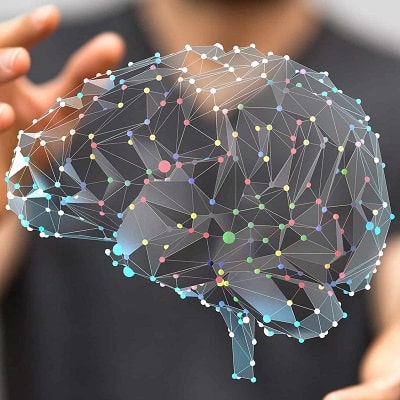What are neural networks?

Neural networks are mathematical models based on the analogy of organisation and functioning of nerve cell networks in a living organism. They are unrivalled in terms of finding the right solution and reacting quickly when solving complex creative tasks. Neural networks have been successfully used for making predictions, selecting solutions, pattern recognition and information analysis. They have unique abilities for self-learning and learning from their own mistakes.
Areas of application
Medicine
Intelligent algorithms are trusted to process test results, photographs showing signs of illness and other patient data. Artificial intelligence sends information to the attending physician when the disease is detected.
Art
Neural networks are able to create paintings, books and music, imitating famous authors. All it takes is the right amount of raw data to complete the task.
Search engines
Search algorithms analyse web page information, recognising the type of content and content and comparing it with a text or image query.

Navigate
When connected to the Internet, neural networks monitor traffic congestion and suggest the best route.
Agriculture
A system that differentiates weeds from cultivated plants can be installed on harvesting machinery for quality harvesting.
Meteorology
Weather radars transmit data to neural networks that provide weather forecasts for the coming hours after analysing rainfall patterns.
Security systems
The neural network algorithm is used in the development of cameras for facial recognition. The monitoring of corporate systems allows a timely response to unauthorised access, introduction of viruses, DDoS attacks, etc.
How neural networks work
A trained system consists of several neurons that are responsible for the processing of information in strict accordance to the individual rules that are specified separately for each component. While processing a large number of external factors, neural networks calculate the extent of their influence on the final result, which allows to obtain the optimal solution to the given question.
Advantages of neural networks
The main advantages of neural networks are:
- The ability to self-learn;
- unpretentiousness in terms of maintenance;
- recognition of important information;
- Self-adaptation to new conditions;
- Parallel calculation method that reduces the time it takes to produce results.
Neural networks in business
Algorithms react instantly to receive data indicating the need to change pricing policy, the need to reduce transportation costs and optimise production, etc.
Analysis of customer behaviour allows neural networks to form a personalised offer.
The ability to process text and voice customer calls allows neural networks to answer standard questions quickly and without errors, relieving consultants.
Neural networks do not pretend to take the place of humans, but they help them significantly in finding the right solutions and analysing impressive amounts of information.
